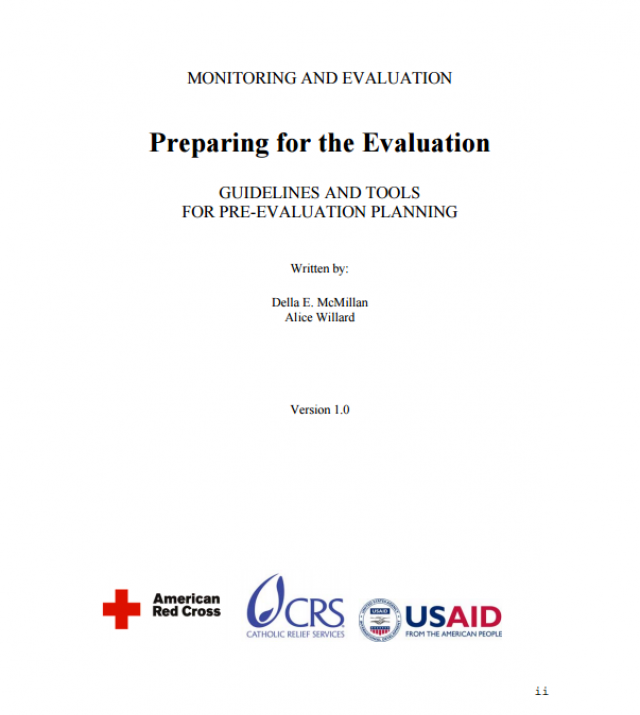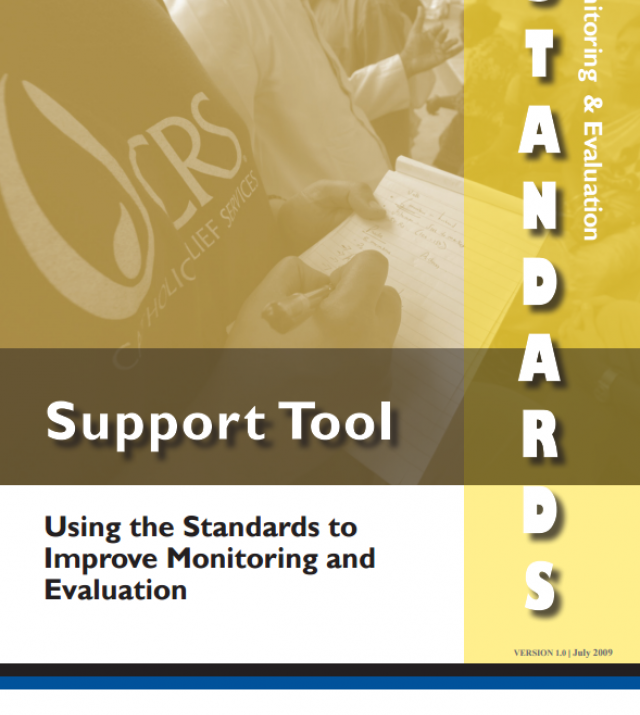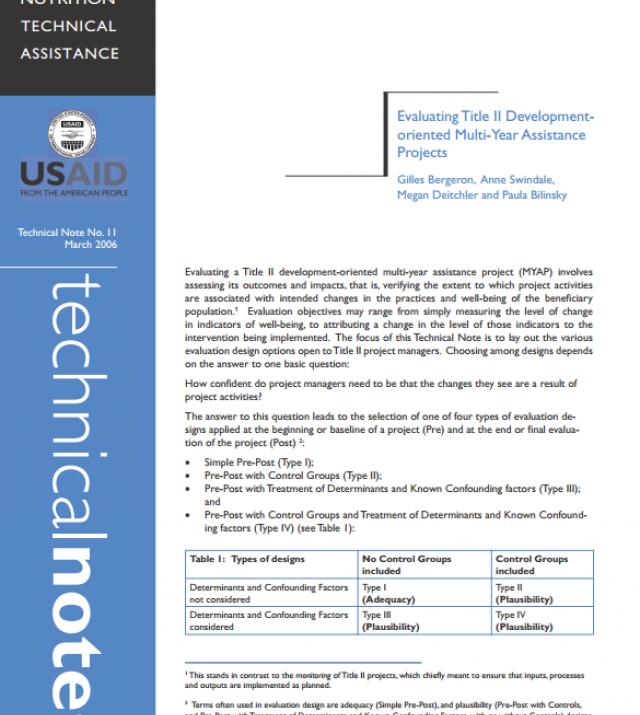
A Guide for Project Monitoring and Evaluation

The process that brought this resource together began in 2000 when the IFAD's Office of Evaluation and Studies conducted a stocktaking exercise, which covered a decade of IFAD experience with M&E at project level. After which, a comparative review was undertaken of the strategies and approaches to M&E systems at project level of several major development agencies. While the stocktaking exercise observed a general weakness in most M&E systems, the comparative review concluded that there is substantial material on M&E concepts and theories, although there remains a lack of practical resource kits on the methodologies and processes at operational level.
As such, the overriding goal of the guide is to improve the impact of IFAD-funded projects, through the introduction of effective M&E systems. It focuses on a learning approach to management that uses achievements and problems to improve decision-making and account- ability. This requires creating an M&E system that helps primary stakeholders, implementing partners and project staff to learn together in order to improve their development interventions on a continual basis. As the ultimate objective is to ensure the maximum possible benefit for the rural poor, they are the ones best placed to assess project impact and must therefore be considered full partners in any future M&E. The guide also suggests ideas for implementing this and other forms of participatory M&E.
The primary target audience is composed of staff from project management units, in particular project directors and M&E officers, together with their implementation partners, such as, public services, NGOs and CBOs. The guide is also aimed at technical consultants and supervisors from co-operating institutions. Because the effectiveness of M&E systems also depends on the decisions taken during project design, specific sections of the guide provide advice to project designers, including IFAD staff and their consultants.

